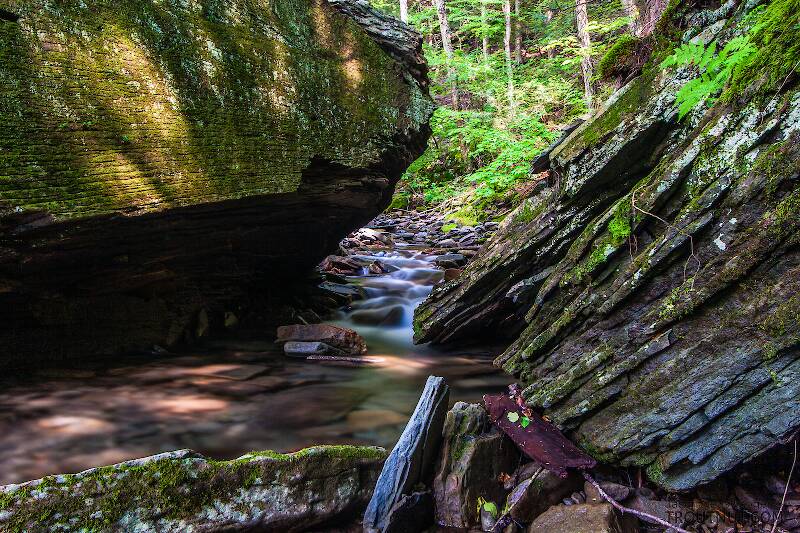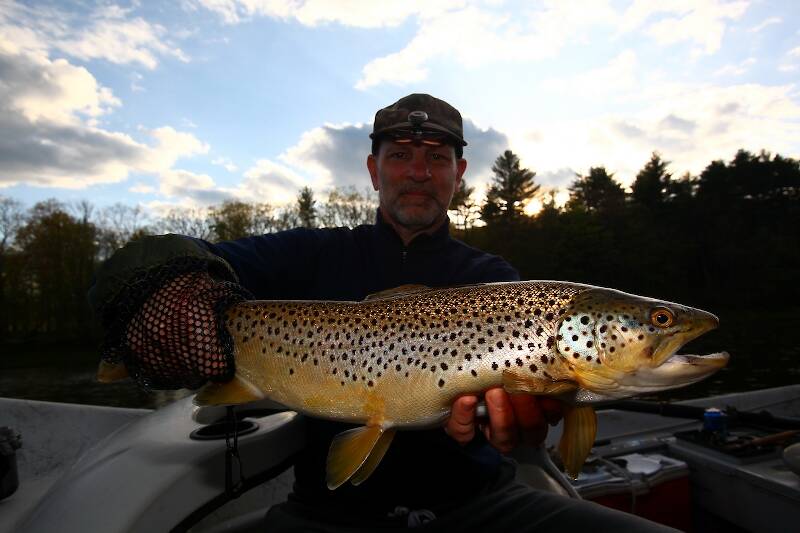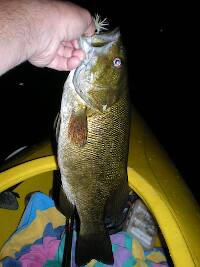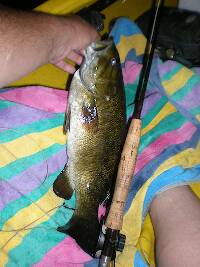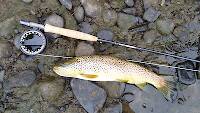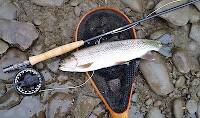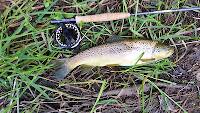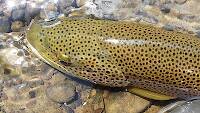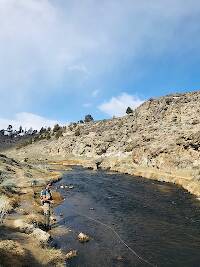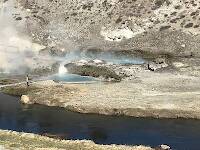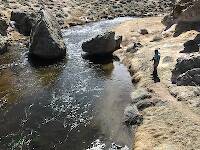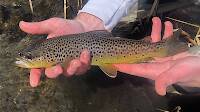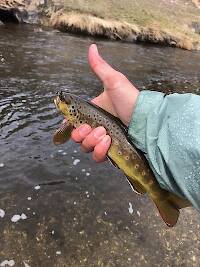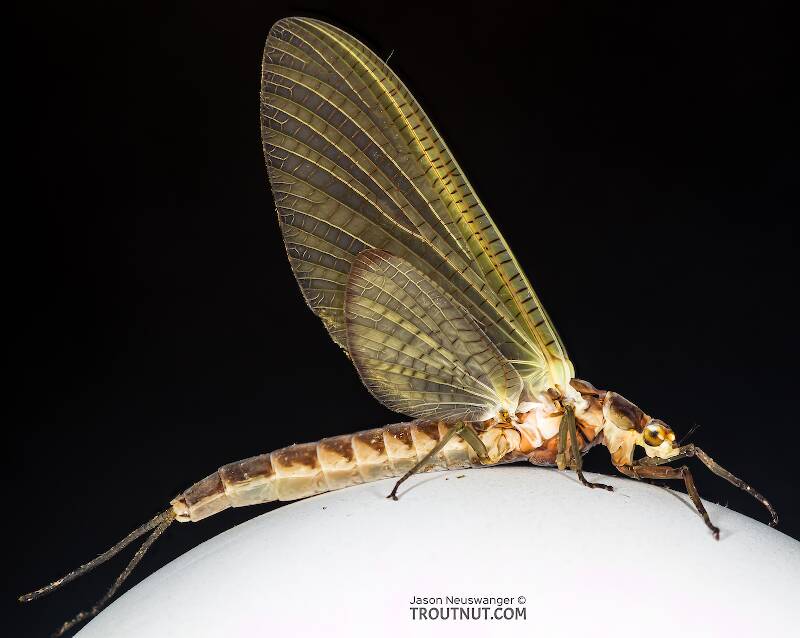
Hex Mayflies
Hexagenia limbata
The famous nocturnal Hex hatch of the Midwest (and a few other lucky locations) stirs to the surface mythically large brown trout that only touch streamers for the rest of the year.
Featured on the forum
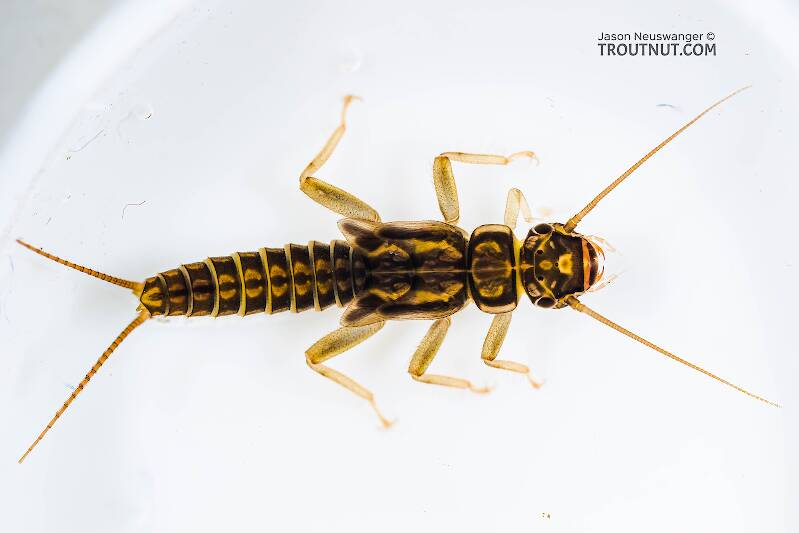

Troutnut is a project started in 2003 by salmonid ecologist Jason "Troutnut" Neuswanger to help anglers and
fly tyers unabashedly embrace the entomological side of the sport. Learn more about Troutnut or
support the project for an enhanced experience here.
Shawnny3 on Sep 3, 2008September 3rd, 2008, 12:05 pm EDT
I was recently on another forum, and a guy on there was estimating that the summer where he is (somewhere in Central PA) has been so dry that half the brook trout population will die. I'm a little skeptical of that analysis, considering the summer where I am (also in Central PA) hasn't been much different from the other summers I've experienced here. I just can't imagine that the brookies that are still thriving after 150 years of human interference would be much affected by a particularly dry summer.
I'm hoping some experts might weigh in on this. Especially in light of possibly irreversible global warming in which years like this would be quite common (or, if the direst prognostications are to be believed, on the cool side of normal), how badly does a hot, dry summer influence trout populations? Obviously it would depend quite a lot on the nature of specific streams, but can any generalizations be made from hot summers we've experienced in the past?
-Shawn
P.S. I'm not trying to resurrect a contentious discussion on whether global warming is occurring, but what might we expect in the coming decades if it is?
I'm hoping some experts might weigh in on this. Especially in light of possibly irreversible global warming in which years like this would be quite common (or, if the direst prognostications are to be believed, on the cool side of normal), how badly does a hot, dry summer influence trout populations? Obviously it would depend quite a lot on the nature of specific streams, but can any generalizations be made from hot summers we've experienced in the past?
-Shawn
P.S. I'm not trying to resurrect a contentious discussion on whether global warming is occurring, but what might we expect in the coming decades if it is?
Jewelry-Quality Artistic Salmon Flies, by Shawn Davis
www.davisflydesigns.com
www.davisflydesigns.com
Martinlf on Sep 3, 2008September 3rd, 2008, 3:15 pm EDT
I've heard that brookies are very adept at surviving in low water conditions, that they will even burrow down under rocks etc. and find water in which to survive. I don't know this as a fact, but it wouldn't surprise me. Gonzo would know; I don't know if he's around or not though.
"He spread them a yard and a half. 'And every one that got away is this big.'"
--Fred Chappell
--Fred Chappell
Jjlyon01 on Sep 3, 2008September 3rd, 2008, 4:18 pm EDT
A friend of mine recently told me of his summer job with a fisheries agency in the Adirondacks. He told me that he had read through a study that showed the trout in the Indian River would actually migrate out of the river into tributaries when the water got too high or low. These fish were radio tagged and they were able to track them to their refuges. He was telling me about 75% of the radio tagged fish would leave the stream during dam releases and in the summer drought.
"I now walk into the wild"
Quick Reply
Related Discussions
Topic
Replies
Last Reply
3
May 27, 2010
by Shawnny3
by Shawnny3
Re: A quiet night on the Rifle, but I conjured up a nice one anyway 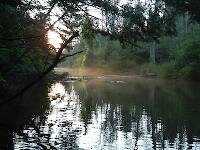




In the Photography Board by Jmd123
+ 4





In the Photography Board by Jmd123
5
Jul 25, 2018
by Adirman
by Adirman
1
Jul 12, 2013
by Troutnut
by Troutnut

